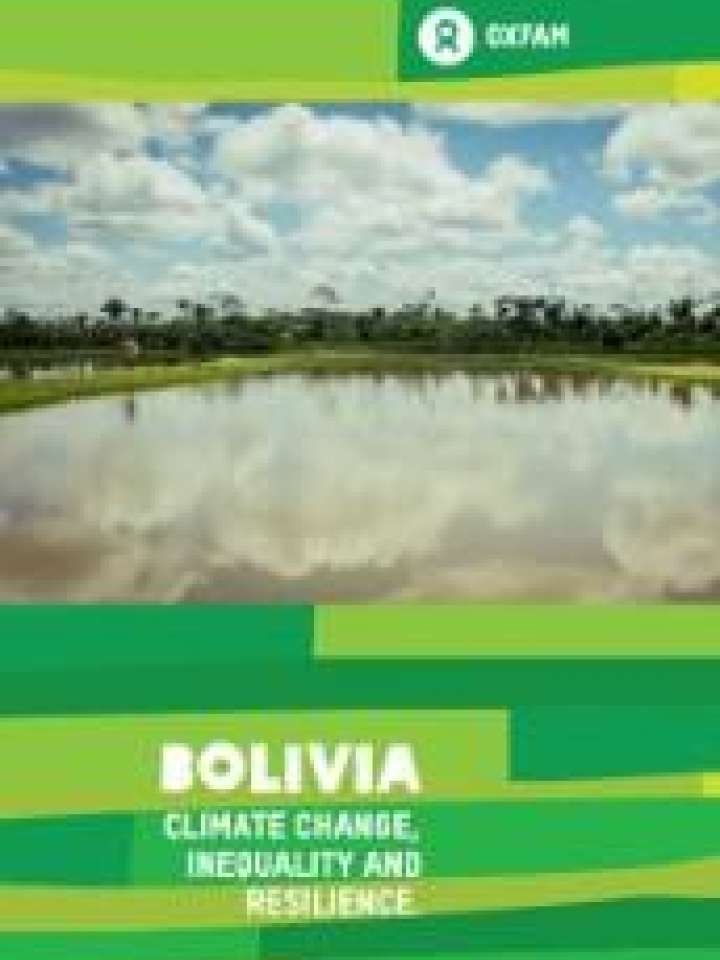Bolivia - Climate change, inequality and resilience
This report follows up on the 2009 Oxfam report which highlighted the challenges that Bolivia would face due to the impacts of climate variability and change, including: food security; glacial retreat and its effect on the availability of drinking water; the frequency and intensity of disasters resulting from human activity; and an increase in infectious diseases and the effects of droughts and forest fires.
A decade later, the current report delves deeper into some points that were not covered in the 2009 report that, given the present climate, other actors and sectors in the country might use, especially when considering the need for an effective national policy to deal with the current challenges. The findings presented in sections 3, 4 and 5 of this report give us a snapshot of the incredibly complex reality of this country. For each of the case studies the authors have provided the background based on recent studies done by Oxfam and other NGOs (national and international) and supplemented by interviews with experts, government officials and grassroots organizations. The testimonies from small-scale farmers and Indigenous people describe the main issues threatening their communities. Section 6 gives perspectives from six organizations on climate change, the environment and inequality. Section 7 summarises some recommendations and implications for national policy and the negotiations Bolivia is working on at the international level.
Explore further
